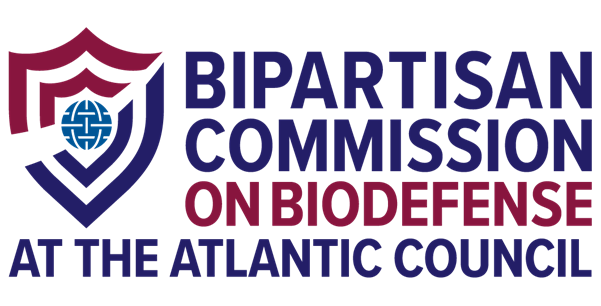New Interactive Tool from the Bipartisan Commission on Biodefense Maps the Nation’s Biodefense Enterprise

FOR IMMEDIATE RELEASE
Contact: Steve Aaron
SRA Communications
(717) 554-8614
steve@SRACommunications.com
NEW INTERACTIVE TOOL FROM THE BIPARTISAN COMMISSION ON BIODEFENSE
MAPS THE NATION’S BIODEFENSE ENTERPRISE
Available Online Now, B-SPAN Assists in Analyzing US Defense Against Biological Threats
WASHINGTON, D.C. (July 10, 2024) – Today, the Bipartisan Commission on Biodefense is releasing B-SPAN, a first of its kind interactive tool that shows what parts of the executive and legislative branches of government address biodefense.
“This resource perfectly complements the Commission’s recently released 2024 National Blueprint for Biodefense,” said Commission Co-Chair Governor Tom Ridge, first Secretary of Homeland Security. “As detailed in this new Blueprint, our success as a Nation depends on exercising authority, political will, and foresight regarding the breadth and severity of biological threats. With B-SPAN, we have a much better handle on what the government is doing to combat those threats and make sure those efforts protect the American people.”
More than 500 federal entities across 15 departments and 9 independent agencies, and 1 independent institution are responsible for biodefense. More than 150 congressional committees and subcommittees address these activities. B-SPAN includes information on mission, duties, year established, programs, initiatives, leadership, reporting structure, jurisdiction, biodefense equities, and Commission-proposed congressional hearings. The Commission will continue to add to this online tool as more information becomes available.
“This new B-SPAN tool will prove invaluable both for those working inside government and everyone involved working to defend our country and the world against biological threats,” said Dr. Raj Panjabi, former Special Assistant to the President and Senior Director for Global Health Security and Biodefense at the National Security Council, and ex officio member of the Commission. “B-SPAN provides the comprehensive insight needed to understand the complexity of individual and collective agency efforts, enabling accountability and oversight.”
B-SPAN also complements the Commission’s 2024 National Blueprint for Biodefense. Addressing the full range of biological threats – naturally occurring deadly diseases, accidental releases from laboratories, and biological attacks designed to kill and wreak havoc – the new Blueprint contains 36 recommendations and 185 action items. The Commission also released an appendix entitled, Proposed Congressional Hearings on the Recommendations of the 2024 National Blueprint for Biodefense.

About the Bipartisan Commission on Biodefense
The Bipartisan Commission on Biodefense was established in 2014 to conduct a comprehensive assessment of the state of U.S. biodefense efforts, and to issue recommendations to foster change. The Commission’s 2015 report, A National Blueprint for Biodefense: Leadership and Major Reform Needed to Optimize Efforts, identified capability gaps and recommended changes to U.S. policy and law to strengthen national biodefense while optimizing resource investments. Subsequent Commission publications have addressed critical needs for The Apollo Program for Biodefense, risk reduction, biodetection, agrodefense, budget reform, diagnostics, biodefense of critical infrastructure, smallpox and orthopoxvirus readiness, and state, local, tribal, and territorial response capabilities. In 2018 and 2022, the White House released the National Biodefense Strategy, and in 2022 and 2023, OMB released the biodefense budget crosscut, top recommendations from the Blueprint. In 2021 the White House released the American Pandemic Preparedness Plan and subsequently produced executive orders and national security memoranda, taking up recommendations from the Commission’s Apollo Program and Athena Agenda reports. The Commission continues to address biodefense challenges and urge reform. Former Secretary of Homeland Security, Governor Tom Ridge, and former Secretary of Health and Human Services Donna Shalala co-chair the Commission. Hudson Institute is the Commission’s current fiscal sponsor.
